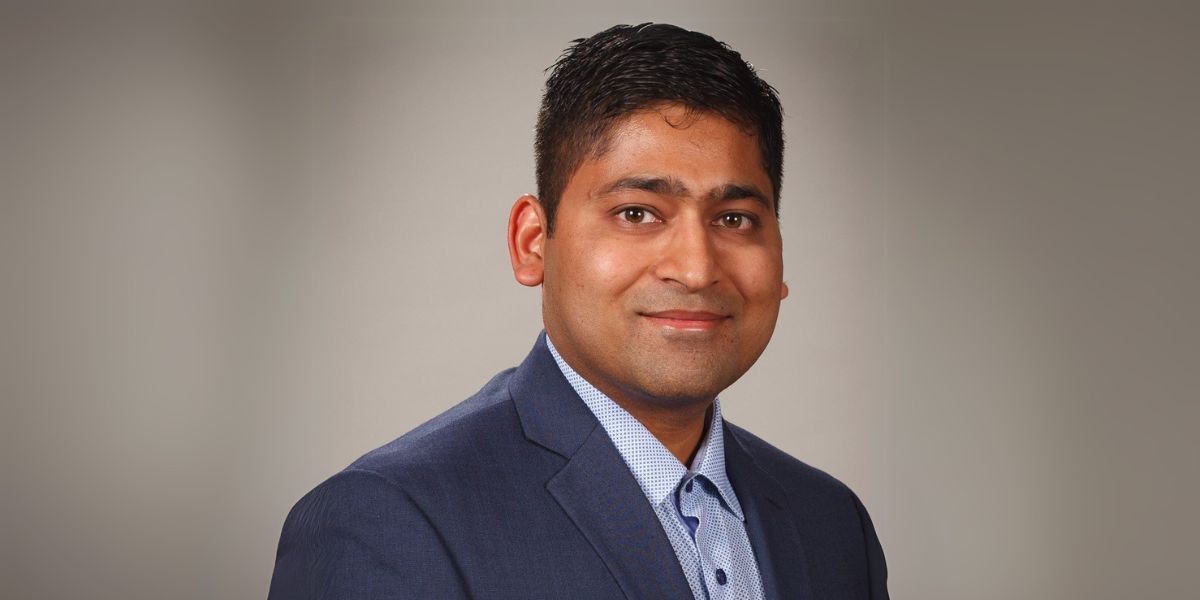By: Joshua Finley
Julien Willard has packed a lot of life experience into his career so far. Originally from Russia, he immigrated West to tap into his long-time fascination with biology and the workings of the human body.
After medical training that took him from London to Moscow and back, Julien settled into a stint as a pediatric ophthalmologist. But he soon realized that working one-on-one with patients wasn’t his cup of tea. “I was not a big fan of parent interactions, but I loved the science of medicine,” he admits.
Craving a broader canvas, Julien started consulting for global health groups like Population Services International and Oxfam. These nonprofit gigs opened his eyes to broader realms connecting public health, technology, and economics. He was itching to operate on a bigger stage.
This growing passion sent Julien back to school to earn advanced degrees integrating public health and economic modeling. Before long, he was jetting off to foreign service roles in the developing world, helping shape national health plans and assisting big pharma and insurance carriers in health economics and outcomes. During his work at the World Bank, Julien did hands-on data science and machine learning in pharmaceutical economics. It was a thrill for a guy who relishes rolling up his sleeves and puzzling over problems.
“It was incredibly rewarding… to be in the field, understanding the problems of the people,” Julien enthuses.
But after years of living out of a suitcase abroad, Julien was ready to settle down. He decided to parlay his blend of medical savvy, economic fluency and problem-solving skills into a consulting career based in the US.

Bringing Better Health Within Reach
Now, as an executive and consultant, Julien aims to connect the dots for companies struggling with inefficiencies and convoluted systems that are preventing breakthrough value. His passion is still better living through science and tech but through smarter business models that deliver speed to value and ensure equitable access and affordability.
With his global perspective and zeal for complex problem-solving, Julien is just hitting his stride, poised to continue bringing better health solutions within reach for more people worldwide.
The Problem-Solving Prowess Behind Julien’s Consulting Success
For Julien Willard, the thrill lies in puzzling through complex challenges. “I like problem-solving more than anything,” he shares, reflecting on the diverse issues he helps clients unravel. This passion for rolling up his sleeves and diving into the root causes of inefficiencies has fueled his rise as a reputable consultant.
After years of advising on business and digital strategy globally, Julien now brings his flair for fixing thorny issues to executive teams at pharmaceutical and biotech powerhouses. He points out the striking similarities behind many of these leaders’ concerns. “Every executive will tell you my problem is special, and the reality is absolutely not. The reality is that it often is utterly commonplace. It’s the same across every company.”
Outdated Systems Create Inefficiency
According to Julien, the main drag on productivity and innovation stems from overly complex tools and processes embedded deeply across organizations. “Companies have been accumulating the systems and data, and nobody really ever looked at what a human-centric process looks like,” he notes.
Without mapping out how employees actually get work done, companies end up with redundant systems and tasks that drones must manually complete. “Let’s imagine I’m a data scientist supporting clinical development…nobody actually understands today what I do for work, how many screens I click, what my job entails.” Understanding workflows allows technology and data strategies to then simplify rather than complicate operations.
3 Keys to Increasing Efficiency
Drawing on years of hands-on experience revamping processes and systems for global corporations, Julien emphasizes three key steps leaders can take:
- Map out workflows from the employee perspective before adding new technology so it supports rather than disrupts real-world tasks.
- Take stock of all existing systems and follow a “strangler pattern” to strip away redundancies and drive incremental transformation.
- Prioritize the design of human-centric processes enhanced by technology, not manual workarounds.
With his passion for understanding root causes and architecting optimized solutions, Julien enables nimbler operations and cost savings that companies can redirect to innovation and growth. “If we save some cash through this process, we can reinvest it into other value areas within a company, like doing AI-assisted drug discovery,” he says of his pharmaceutical clients.
True to Form, Fixing Biopharma’s Biggest Headaches
While Julien lends his optimization chops across industries, he remains devoted to transforming healthcare. “A lot of my clients are senior executives in the pharmaceutical industry,” he explains. Through optimizing R&D, boosting medical affairs and beyond productivity, his innovative solutions allow these leaders to accelerate care and treatment breakthroughs for patients worldwide. Julien adds, “Everyone is chasing after AI. My advice is to slow down, sift through the hype, and focus on changing entire workflows with measurable value. Nobody can scale hundreds of use cases; concentrate on a few that will help you ring the cash register.”
Ultimately, Julien’s consulting quest involves helping visionaries bring life-changing solutions to the market faster by clearing away ineffective legacy systems that stand in the way of meaningful progress. This is just the type of gnarly challenge this ever-curious innovator thrives on tackling.
To learn more about Julien Willard, visit his website.
Published by: Khy Talara











